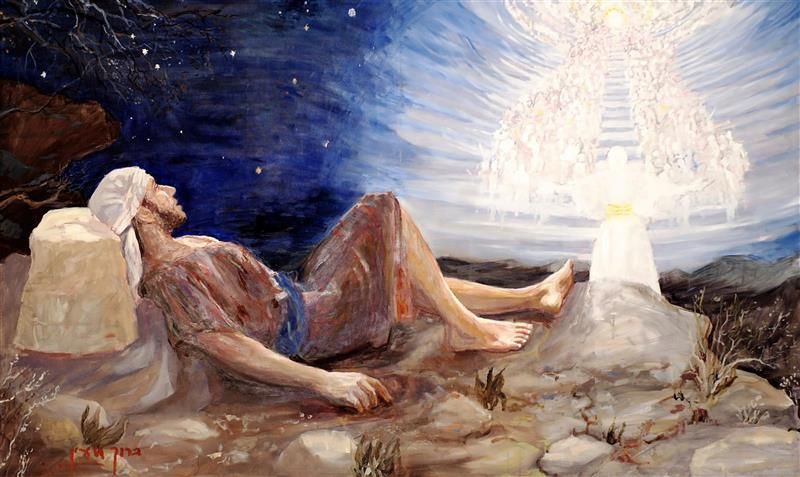
To listen to today’s reflection as a podcast, click here
Many of life’s most memorable spiritual moments seem to come out of nowhere.
They aren’t planned. They aren’t expected. They catch us off guard.
It’s as if a curtain is suddenly pulled back, and we catch a glimpse, for just a fleeting moment, of the reality of the invisible world. And we realize there’s a lot more going on than we had suspected.
One such moment happened in my life during a Sunday morning worship service at the church I served for 28 years. An older pastor from Romania was visiting us, and we had asked him to take five or ten minutes to describe his ministry in a rural community.
Iosef Pop is a remarkable man. He has mentored a number of young pastors and released them for service across Romania’s heartland.
He is courageous. When some strangers walked into his village, hoping to lure young women into a “glamorous life” in the West – but almost certainly into sexual slavery instead – Iosef publicly took a stand. Armed only with moral authority and confidence in the Holy Spirit, he declared, “You will not be taking any girls from this community.” He prevailed.
The one thing Iosef has not been able to master is speaking English.
Therefore we hired an interpreter for his Sunday morning visit – a young woman, born in Romania, who happened to be enrolled at a nearby Hoosier university. She did not know Iosef, and as far as we knew, she was not a person of faith.
The sanctuary was packed that day. Just before Iosef spoke, about 60 children from our Sunday School paraded in to sing a pair of praise songs. There were smiles all around.
When Iosef walked to the pulpit, with the interpreter standing alongside, he was beaming.
He expressed his joy at hearing the children sing. He went on to describe the plight of so many of Romania’s children. Nikolae Ceausescu, the Soviet-backed dictator who had been toppled not more than a decade earlier, had demanded that Romanians produce large families. The regime would need multitudes of children to become warriors and factory workers.
But when Ceausescu’s reign imploded, life became precarious for many of those children. Some of their parents, economically crippled, simply turned them loose. Kids between the ages of six and sixteen struggled to survive on the streets.
Iosef began to describe his vision of a future in which Romanian children would enjoy safety, security, opportunity, and the chance to go to bed at night knowing they were loved by a God who would never let them go.
That’s when the interpreter suddenly lost her composure.
“Forgive me,” she said to us, tears filling her eyes. “But what this man is saying is so moving to me. He’s talking about blessing the children of my homeland. This means so much.”
Tears filled many of our eyes, too. Iosef paused, not knowing what she had just said to us – but suspecting that something significant was happening.
A curtain was being pulled back.
It was one of those “thin places” acknowledged by Celtic spirituality – momentary intersections between this world and the invisible realm. For just a moment, we all caught a glimpse of the entanglement of history, tragedy, hope, and grace. We watched as it dawned on a young woman that (in the words of Samwise Gamgee in TheLord of the Rings), “There’s good in this world, and it’s worth fighting for.”
In the book of Genesis, Jacob has such a memorable moment.
The young man whose descendants will one day be known as the people of Israel is running for his life. He has conspired with his mother to deceive his father, stealing the much-coveted patriarchal blessing from his older brother Esau.
Now he’s in the middle of nowhere, all by himself, heading for who knows where. He lays his head on a rock and falls into a fitful sleep.
But it’s a sleep in which he is visited by the very God he’s not sure he really believes in. God promises to bless him and watch over him. Jacob awakens and marvels, “Surely the Lord is in this place, and I was not aware of it” (Genesis 28:16). He calls that place Bethel, which means “house of God.”
Every place we go turns out to be Bethel.
Every now and then the curtain is pulled back – in the middle of your kids’ playtime, or in the thick of a traffic jam, or halfway through a phone call, or while you’re stirring spaghetti sauce, or walking on a rain-covered sidewalk, or even (amazingly enough) during a Sunday morning worship service – and we suddenly realize that the Lord is in this place and doing something extraordinary.
And we were not aware of it.
One definition of spiritual growth is learning to trust that God is at work in every circumstance, even when the curtain isn’t pulled back, even when we’re not granted those fleeting glimpses.
May the Lord bless you as you go from one Bethel to another – every hour of this seemingly ordinary day.
